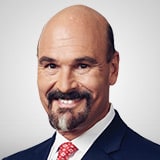Jon Najarian, co-founder of OptionMONSTER.com, uses the takeover of MedImmune by AstraZeneca to show how big institutions win big while small investors can lose at the options game.
When you're tracking the trading action in the stock market, it pays to know what "smart money" is, versus "dumb money."
One recent example of mega-money players making big bets happened in MedImmune. My examination shows dumb money being burned and smart money ringing the register. AstraZeneca (NYSE: AZN) closed its successful $15-billion purchase of MedImmune last week. (The ADSs closed just above $51 Monday-Editor.)
Here's how it played out.
MedImmune, which is the maker of nasal vaccine FluMist, was trading in a tight range of $30 to $34 from October 2006 through February 2007. The trading volume picked up dramatically [in February] when Carl Icahn got involved with MEDI: the volumes of call options trading in MEDI spiked from 2,900 per day in January to upward of 6,100 per day in February.
In March, however, our computers showed MEDI calls averaging 12,000 contracts per day, more than triple the January average. Much of that March speculation didn't pay off for investors betting on a takeover in the short term, as shares still languished at the $35 level.
[April] options [also] expired worthless on April 20, [and] the April 23rd announcement about a takeover by AstraZeneca could have made those same investors a small fortune if they'd played it right. Talk about bad timing-some unlucky souls probably lost their shirts during both the March and April expiration cycles!
The trading activity of the truly "smart money" (i.e., big institutions and hedge funds that buy and sell contracts in bulk) is always the better tell. And during the first 14 trading days of April, the smart money hit faster and more furiously than any previous speculative money.
Specifically, our proprietary HeatSeeker program showed massive call speculation that pushed MEDI's average daily call volumes above 45,000 contracts per day! Most of that speculative buying of calls came after the company appointed Goldman Sachs (NYSE: GS) to explore the sale of the company. It retained Goldman on April 12, and shares of MEDI traded up 11% that day to just shy of $42.
The buying peak hit on April 18, when the stock traded up to $46.70 on a 34 million-share turnover and 102,000 calls changed hands. Those buyers were richly rewarded, as news of AstraZeneca's $58-per-share cash bid moved the call options with a strike price of $55 (or slightly higher) in-the-money.
The MEDI May 47.50 Calls and the May 50 Calls [racked up] gains of 290% and 620%, respectively. Some $48 million in profits was made by the smart-money players who accelerated their buying in the sessions preceding the announcement of the AZN takeover.
Much of the call buying and put selling in MEDI [reportedly] came from none other than hedge fund giant Steve Cohen and SAC Capital. As Roddy Boyd wrote in the New York Post, "SAC's Cohen and his traders have increasingly found it lucrative to buy shares in companies that are the target of Icahn's agitation for change."










